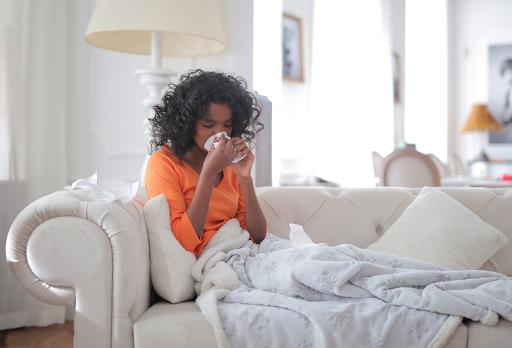Winter months seem to last forever. With less sunlight and frigid temperatures, the days feel quite dreary and leave you feeling more tired than average — and if you’re suffering from sleep apnea, you can’t afford to feel more unrested. Not to mention, winter often brings on annoying head colds that never seem to go away! Winter months can wreak havoc on your sleeping, and over time can worsen your sleep apnea symptoms.
Let’s take a look at how winter and the common cold impact sleep apnea and what you can do to alleviate the symptoms.
Why Sleep Apnea Is Worse During Winter
It comes as no surprise to anyone that winter brings some of the coldest months of the year. These frigid temperatures can impact your sleep apnea if not appropriately treated. When suffering from obstructive sleep apnea, your airways constrict and collapse due to the soft tissues in your throat not being strong enough to remain in place. As a result, your body cannot get enough oxygen which leaves your body gasping for air as it tries to reopen your airway. In most cases, you won’t even notice that you’re choking or snoring throughout the night when these breathing cessations occur, but they will leave you feeling unrested even after a full night’s sleep.
Here are a few ways that the winter months can aggravate your sleep apnea symptoms:
- Less humidity – Winter is extremely dry, which results in less humidity in the air. This humidity helps to soothe your airways and keep them moist, enabling them to serve their purpose and pass air in and out of your body. But when the air doesn’t have adequate humidity, you might notice that your mouth and nasal passages feel dry. This makes your airways even weaker, making it more likely that the soft tissues will collapse throughout the night.
- Dry nasal passages – Have you ever dealt with the common cold? If you’re suffering from dry nasal passages, often resulting from less humidity, your body is more vulnerable to the cold virus. If you contract a cold, especially one that leaves you with a stuffy nose, you will have difficulty breathing throughout the night. Add sleep apnea into the mix with your congestion, and you might find yourself gasping for air more often than usual, leaving you extremely unrested.
- Medication – If you find yourself needing medication to help kick your head cold or congestion, it’s important to note that your prescription may also increase your sleep apnea symptoms. Some drugs cause you to fall into a deeper sleep, which at first might seem like a good thing for someone with sleep apnea. However, this deep sleep often causes you to relax your body’s muscles, leading to more frequent blockages of your airways.
- Sleep position – When you’re feeling congested, you likely have more difficulty breathing while lying down than you do when you’re upright. Because of this, you might find yourself opting to sleep on your back to keep your nasal passages unclogged. However, sleeping on your back has been shown to make sleep apnea worse. So while you might be able to breathe better through your nose, you’re making it more likely for your airways to collapse while sleeping.
While the winter temperatures might lead you to get a cold that worsens your sleep apnea symptoms, it’s a two-way street. When you aren’t getting enough sleep each night, the risk of catching a cold increases significantly. That’s why you need to treat your sleep apnea with AutoPAP therapy to ensure you’re getting enough sleep and limiting your chances of getting sick this winter.
Prevent Your Sleep Apnea from Worsening This Winter with ApneaMed
Whether you’ve been properly diagnosed with sleep apnea or suspect you might be suffering from it, you must maintain your recommended treatment consistently throughout the winter months to prevent your sleep apnea from worsening. ApneaMed can supply the products you need to help alleviate your obstructive sleep apnea symptoms.

